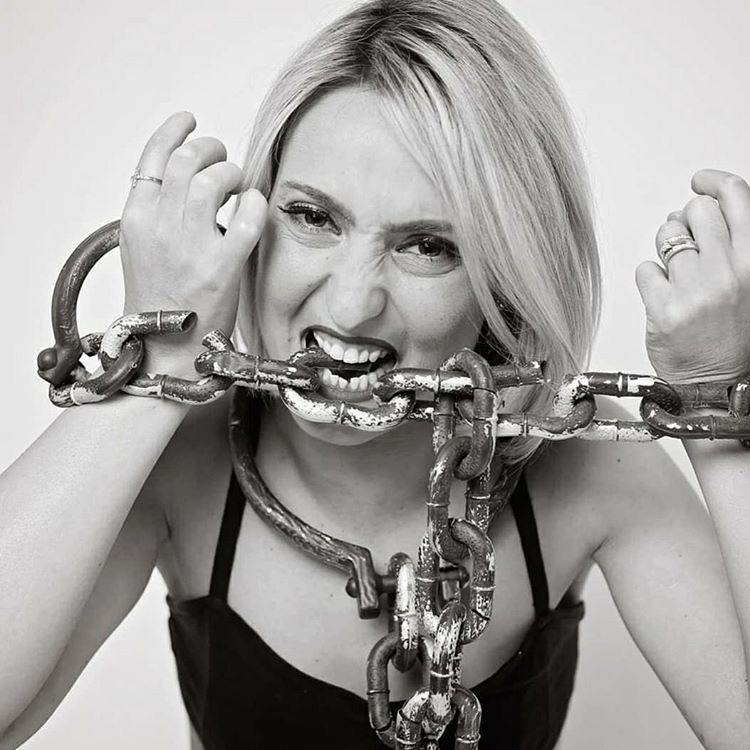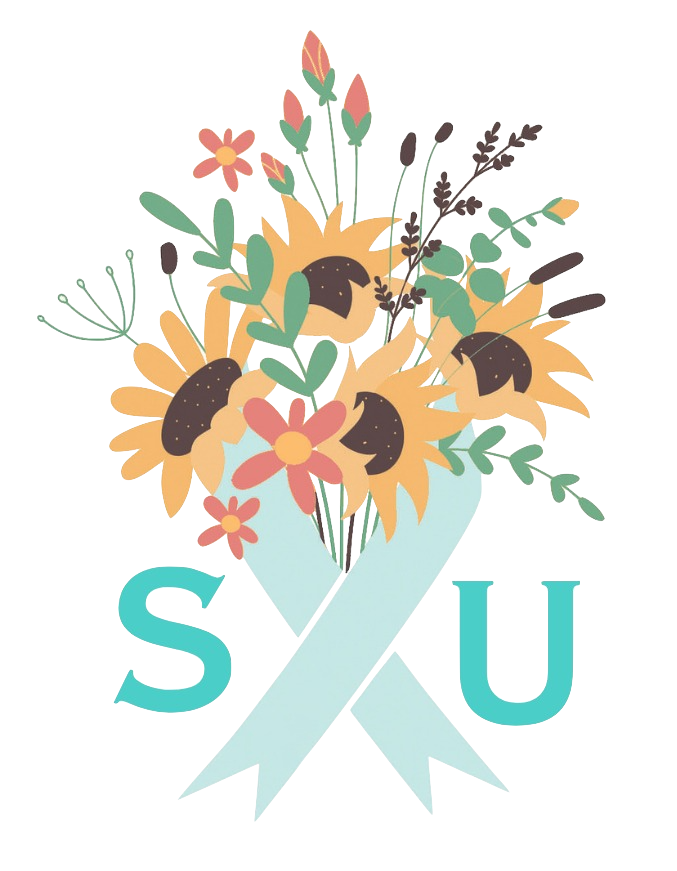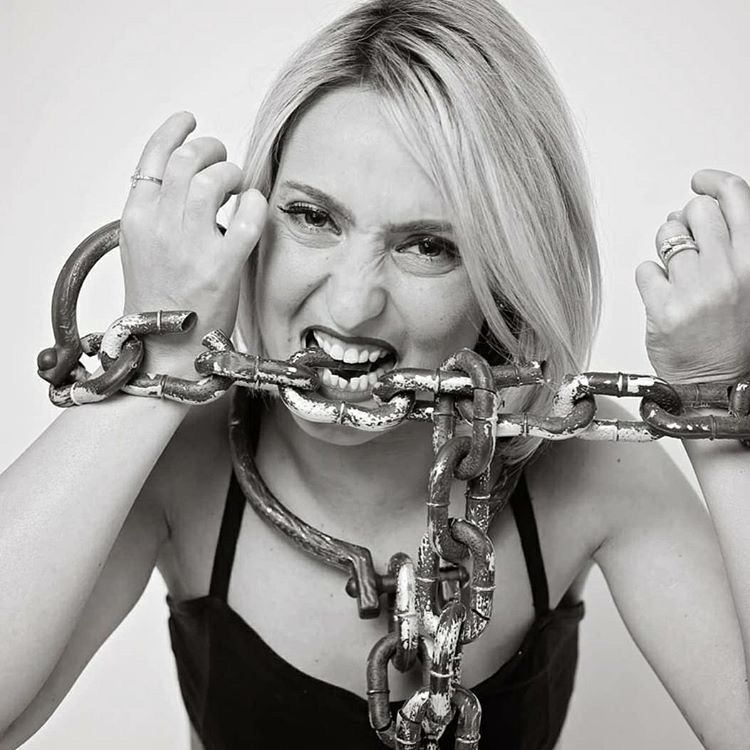Silvia Petrozza
Toronto, Ontario (Canada)
SILVIA PETROZZA
Scleroderma Stories Issue 1

Could you please tell us about your journey?
I’m 36 years old. I was diagnosed with systemic scleroderma 12 years ago, shortly after my first child. At the time, I was 24 years old. It started with severe Raynaud’s syndrome. At first, I thought it was lupus. My doctor refused to test me. However, I insisted. My antinuclear antibody (ANA) test came back positive, and further testing showed systemic scleroderma. I had not heard of scleroderma before my diagnosis. Lupus, yes, but not scleroderma.
I now have 3 children. My Raynaud’s and gastrointestinal issues have been been the biggest struggle. I’m a free spirit, no bullshit kinda girl. It took years for me to change my narrative about this disease. I spent years allowing this disease to own me.
What helped you change your narrative about this disease?
I had become depressed because I felt trapped in my own skin. I wanted so desperately to live life and enjoy my family, but I didn’t know how to do that while living with chronic pain. I felt like a burden to my family because I was constantly in the hospital. I got to a really dark place. Being on pain medication for so long felt like it was holding my soul hostage.
I began seeing a life coach about two years ago. After seeing a life coach for a while and really putting in the work, I started setting goals: writing again (something I love) and getting into healthier habits such as working out, eating clean, and just taking a more holistic approach to my disease and life. After about a year, I finally came off all of my pain medication and any other medications that weren’t really helping with my disease anyway. Then, I started working on what my purpose is in this life.

How have you worked on what your purpose is in this life?
I got my life coaching certification, and I became more involved with advocacy regarding this disease. I’ve also become involved in helping others live with scleroderma or other autoimmune diseases, as opposed to just surviving.
With the coaching I do, it’s centered on working on underlining trauma issues that may be causing the disease to flare up. Over the years, I have noticed the more stress I have, the more my disease flares up. Next, we find healthy habits to incorporate into daily life, such as journaling, meditation, diets, etc. Some people are drawn to more than one thing or take a while to figure it out once they can let go of certain things they’re holding onto that aren’t serving then. Then comes my favorite part: helping them find their purpose and living with autoimmune diseases, yet still doing what they love. Usually, sessions are weekly for 60 to 90 minutes. I give them things to work on, watch, or read before the next session, and then we set short and long term goals.
Personally, I recently took up jujitsu. I love jujitsu but was previously too scared to try because of my restrictions. However, we make modifications. I’m also currently working with a songwriter to turn one of my poems into a song (something I have always wanted to do), and I’m hoping to start a training course to be able to lead scleroderma support groups online.
I’m still in the hospital once a month for five days. I do prostaglandins infusions to help with my Raynaud’s. It’s still pretty bad, but my monthly infusions and port catheter definitely help. It’s tough on my family, but we’ve found our own “normal” in all of this, which makes it a lot easier.
What kinds of doctors have you seen, and what medical workups and treatments have you had?
I went through many rheumatologists before finally finding helpful ones. I’m treated at Toronto Western Hospital, and most of my other specialists (such as my GI and lung specialists and inertial medicine) work out of there as well. I’ve traveled to Baltimore to Johns Hopkins Hospital for a second opinion. That is where they suggested that I get a port catheter and do monthly prostaglandin infusions.
I’ve done hyperbaric oxygen treatment to help heal infected ulcers to prevent amputation. That helped, but it was a long painful process. I’ve also traveled to Miami to try stem-cell implants, where they took my own bone marrow and injected into my body. It was very painful and did not work.
I’ve received 3 sympathetic treatments where they cut into my nerves in my hands and in between my lungs. That helped. However, it was a temporary fix and not worth the long recovery.
Now, I try natural approaches. I’ve tried a raw food vegan diet, infrared sauna, reiki, hot yoga, and meditation. There are so many other healthier options out there. They may not cure me or have immediate physical effects, but they do wonders mentally, which in turn helps with everything else.

Have you experienced any difficulties with having children while dealing with your disease?
Yes, it’s very difficult! I have an amazing family and support system. I don’t know how I would do it without them. I really feel for people who don’t have much support, which is why I’m always willing to help them any way that I can.
Some days, I just cannot get out of bed – especially in the winter. There are lots of little things that I cannot do. Tying shoes, zippers, holding hands, grabbing things from them they shouldn’t have like iPads… But, I find ways to tweak things. My kids are aware that they have to be careful too.
What advice do you have for those with scleroderma or other chronic illnesses?
I would ask them to find their “new normal.” I’d tell them that it is possible to still do the things they want to do, and more! Dream big and live hard!
It’s a lot easier for people who don’t live with chronic illnesses. The difference with us is that we just need to tweak it a little bit. I call this “tweaking scleroderma style.”
When we finally achieve the goals we set out to achieve, it means so much more because of how hard we’ve worked to get there, and we appreciate it that much more. Sometimes, it’s even the little things like being able to wear heels for a few hours and dance! Life is harder, but it will definitely taste a lot sweeter. We all have a purpose, a song to sing, and a story to tell. The question is what’s your purpose, what’s your song, and what kind of message is your story trying to tell.
Always remember the importance of self-advocacy. Do not let doctors or big words intimidate you. Ask questions, and if it doesn’t feel right, ask again until it does!
Be sure to follow us on Instagram and Facebook (@sclerounited) to see more scleroderma warriors’ journeys in our weekly Sclero Sunday series.
Are you a scleroderma warrior? We’d love to interview you for Scleroderma Stories! Please visit tinyurl.com/share-my-sclero-story or email us at contact@sclerounited.us

